Key finding
Industries are not prioritising nutritious food choices

One in ten people of the world’s population are undernourished; more than one third cannot afford a healthy diet. At the same time, one in four is overweight and diet-related health costs linked to mortality and non-communicable diseases are projected to exceed USD 1.3 trillion per year by 2030. The COVID-19 pandemic has further deepened challenges around nutrition, causing an additional 130 million people to suffer from hunger in 2020 alone, alongside evidence in a rise in the consumption and marketing of unhealthy foods. Whilst our understanding on how nutrition can be tackled across the value chain evolves, the role of the private sector is becoming more evident. Nutrition is a systemic issue. The private sector must step up to promote nutrition and the shift towards sustainable consumption patterns.
Actions to improve access to nutritious foods is low across the food value chain
Reliable access to affordable, safe and nutritious foods is fundamental in providing a sustainable food system. It speaks to the quality of diet and is inextricably linked to hunger, malnutrition (including overweightness), obesity, and food insecurity. Social and environmental factors, such as poverty and climate change, can result in a person becoming food insecure. Often food security is considered a humanitarian or governmental issue. However, if we expand our understanding from food security to being primarily about productivity and distribution and focus on the access and affordability of healthy foods, it is clear that the private sector can play a key role.
Our assessment shows that the majority of the 233 companies involved in the manufacturing of food and beverage products are taking steps to improve the nutritional value of products in their portfolio, for example through reformulation. However, only 12 out of 233 companies set targets to increase the proportion of healthier options. Moreover, while 15 of the 233 consumer-facing companies have implemented commercial activities to improve the accessibility and affordability of healthy foods, only two companies have set targets to make healthy food more accessible and affordable to vulnerable population groups. Notably, these two leading companies have set targets to increase the percentage of affordable products that meet certain nutritional standards in lower-income markets.
Agricultural production also contributes to better nutrition and diets. Together with improvements in productivity, sustainable agricultural practices play a role in increasing the availability of healthy and nutritious foods and help with addressing micronutrient deficiencies. 19 out of 54 (or 35%) of the companies active in the agricultural input segment – machinery, seeds and fertilisers – recognise their role in tackling malnutrition, of which ten companies provide evidence of activities to support the production of nutritious foods. Examples of initiatives include fortification, agricultural solutions and products to improve the nutritional quality of fruit and vegetable crops. Moreover, 22% of the agricultural input companies demonstrates involvement in partnerships aimed to address food insecurity by improving farmers access to high-quality inputs.
Promotion of healthy food options not a clear priority
Retailers, restaurants and food service providers interact daily with consumers and therefore have a strong role to play in helping them make healthy and nutritious food choices. Our assessment shows that more than 80% of the restaurant and food service companies in scope do not disclose a commitment to improve the nutritional quality of their menus. Moreover, 49 out of 62 retailers and 22 out of 24 restaurants and food service providers do not show evidence of responsible marketing policies and commercial activities to promote healthy food options, even when targeted to children. These industries have a great responsibility to help consumers break unhealthy eating habits, instead of actively promoting them.
Companies can set the example by integrating workforce nutrition
In addition, our findings show that 2601 out of the 350 companies do not disclose having workforce nutrition programmes in place. The wellbeing and health of workers was brought to the forefront during the pandemic, and with a collective reach of 23.5 million employees, the impact of providing healthy food offerings at work is immense. The topic is under full control of the business and brings awareness of good nutritional practices among staff. The Workforce Nutrition Alliance distinguishes four programme categories: healthy food at work, nutrition education, nutrition-focused health checks and breastfeeding support. We are encouraged to see 73 companies implementing at least one of the suggested programmes, and a further 17 companies providing evidence of at least two workforce nutrition programmes through company-wide policies. These results prove that this is an area where companies can act quickly and realise direct positive impact for their employees.
